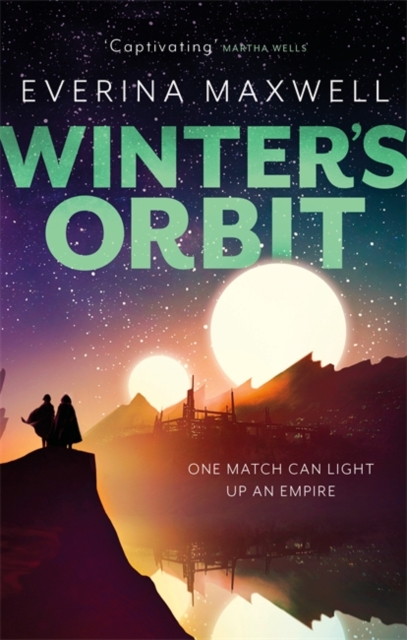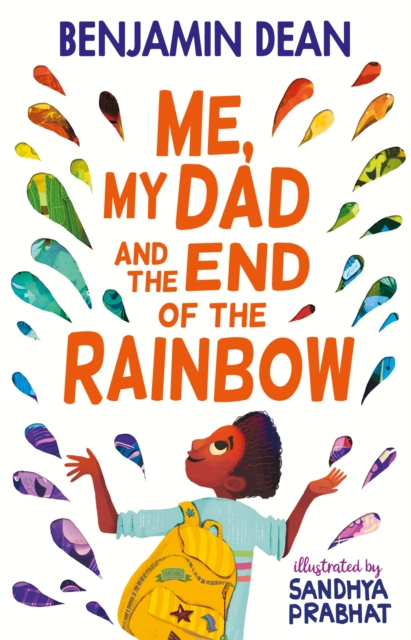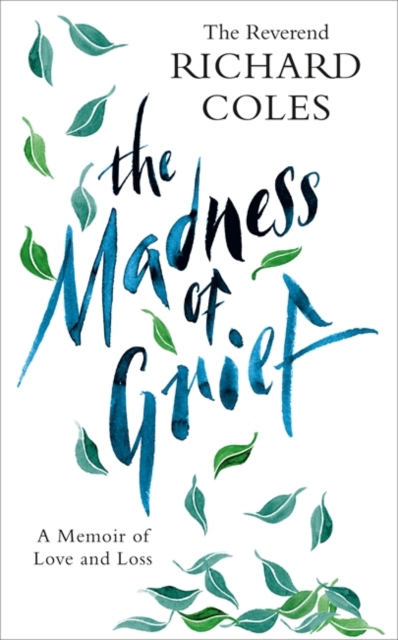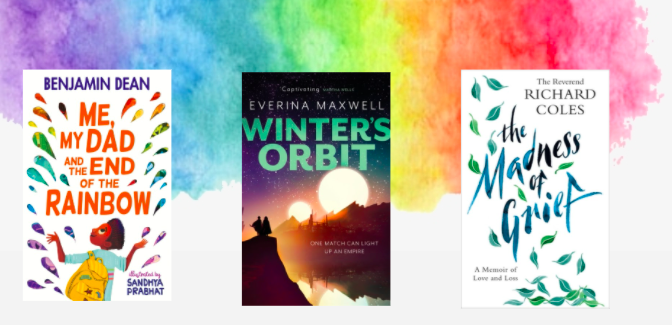It’s taken all the way to April, but we’re finally back on track, working our way through the LGBTQIA+ acronym. We’re at G now, which is probably the most well-known of the letters. ‘Gay fiction’ is a term often used interchangeably with ‘queer fiction’ as an umbrella term, but this month I wanted to focus particularly on gay men. Even so, we’re spoiled for choice!
We have books that could be classified as queer in nearly every section in the shop – I say ‘nearly’ only because I’m not sure about Architecture, but I only have my own ignorance to blame there. Like queer people, queer books are often characterised by variety rather than the one shared experience we have in common. The ‘G’ has the biggest public profile of LGBTQIA+, and therefore the biggest body of work to best demonstrates this, and so that’s what I set out to cover this month. If these books – a space opera, a children’s book and the memoir of ‘the strictly vicar’ – seem like unlikely choices to sit beside each other, then great! That’s exactly why I chose them. Just don’t expect any smooth segues this month.
I’m going to start with a small confession – I did not read Winter’s Orbit this month.

I actually read it way back in January, before it was even out, because it was being compared to Becky Chambers and Ann Leckie and, of all people, Casey McQuiston. I had to know what on earth it was. I took it home, and had a flick through the first few pages to see what it was about. Then I read it over dinner (book in one hand, spoon in the other, the natural state of the bookworm), stayed up too late reading it that night, read it over breakfast and in any spare moment I could find, and had finished it by lunchtime the next day.
Winter’s Orbit is a fantastically easy read. Usually, that’s not what I look for in science fiction. It’s the explorations of philosophies and ideologies – and the fast-paced space adventures – that appeal to me. Really good character development is an added extra rather than a feature. Authors like Becky Chambers have been changing that. As it turns out, aliens are the perfect way to explore questions about the future of humanity, and what makes us human at all, and those stories pack so much more punch if you’re emotionally invested in them.
So the perceptions of what sci-fi can be, and the type of readers it appeals to, were already on the move. Everina Maxwell is one of the first in what I hope will be a long line of authors taking advantage of this. Winter’s Orbit slides into the unlikely genre-defying position of being a romance novel first and foremost, which just so happens to take place in space, against the backdrop of disintegrating interplanetary politics. It’s bloody good at it too – may we even go so far as to say trail-blazing?
When I describe Winter’s Orbit to people, I tell them about Kiem and Jainan first, about how they met (arranged marriage, with one day’s warning, yes really) and the hilarious rom-com nonsense they get up to (we’d be here all day, it’s a lot). This sweet, sometimes funny, sometimes heartbreaking love story is happening in the middle of a ‘political wobble’ that might just dissolve into intergalactic war if Kiem and Jainan do a REALLY bad job of presenting themselves as the perfect couple.
Fair warning, it does come with a hefty warning for domestic abuse. Although mostly it’s about healing, it is also the kind of book that you giggle all the way through until suddenly you’re sobbing and you’re not quite sure when it happened. Winter’s Orbit is a fun, delicious, romantic romp of a book that digs deep into the human experience.
What I did read this month was Me, My Dad and the End of the Rainbow.

It’s a children’s book, for readers 9 and up, about a boy called Archie Albright who is not having a good time. Told with humour, heart and a fair bit of sass, it’s a fun and easy read that explores the question of how on earth you explain what being gay means to children.
Archie’s mum and dad have been arguing. A lot. Archie’s dad has moved out, and they’re both keeping a secret from him. A secret that the rainbow leaflet for London Pride that falls out of his dad’s pocket might just be a clue to. Thus begins a hilarious adventure, in which Archie and friends go all the way to London Pride by themselves, get caught, get lost, get rescued by drag queens, and figure out what Archie’s dad being gay does and doesn’t change.
It is one of those rare gems that both children and adults will enjoy reading – Archie’s voice is warm and funny and endlessly entertaining. In fact the whole cast of characters are brilliant. I am especially fond of Archie’s anxious friend Seb and harried babysitter Oscar who tries so hard to be cool. Of course they are all dragged along for the ride, some more willingly than others!
It is also exquisitely illustrated. The first thing I did when it came in was flick through the pages, looking at Sandhya Prabhat’s beautiful chapter headers. The mural that you can just see hints of in the cover is just incredible in its entirety – as full of joy and life as the book itself.
The final book I read this month was The Madness of Grief by Reverend Richard Coles.

This is a book that I wouldn’t usually choose to read. I’m known in the shop as someone who seeks out uplifting books. I like my happy endings – life is difficult enough without my escapism being full of misery too. But I also read to learn. I chose to read this because it tackles a subject that we don’t often like to dwell on, and which the pandemic has brought us all closer to; the death of a loved one.
This is a book written to help others. Reverend Coles himself said “…what I want from other widows is for them to tell me what it’s like. So that’s really what I’ve tried to do is just… to say what it’s like.” It doesn’t read like a self-help guide, or a sermon. It is simply a memoir, quite short, in which we may find that if nothing else, grief is understood.
Reading a book like this is always going to be an intensely personal experience. Not just in what it contains, but also what each of us gets out of it. I’m very lucky not to be reading it from a position of recent bereavement. As a young queer agnostic person (a string of identity markers that I’ve never had cause to put together before), I was also surprised by how much I drew, personally, from the memoir of a 59-year-old gay vicar. And that’s really why I wanted to share this book this month. I would never have picked it up without this roundup, and yet now it will live on my shelf until I or someone else might need it. And in the meantime, I will try to do all the things that a brush with death reminds us to do; to be kinder, to be more appreciative. And, of course, to read more books.
As always, you can find this month’s books here, and a collection of new and upcoming gay books here.
